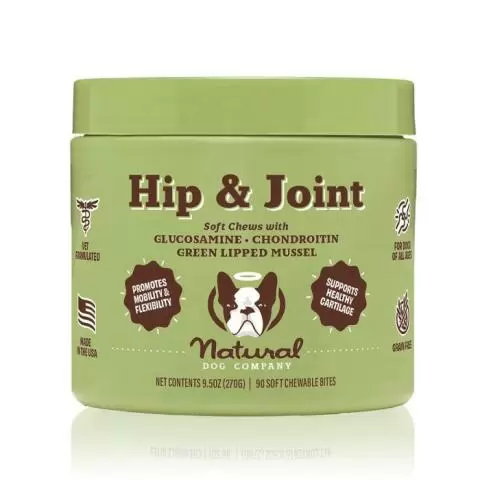Excellent Advice On Choosing Petz Park
Excellent Advice On Choosing Petz Park
Blog Article
How Can Probiotics Help With Skin Allergies In Dogs And Cats?
Probiotics are a great method to control and alleviate skin allergies in cats and dogs. The beneficial microorganisms can aid in maintaining a healthy microbiome in the gut that aids in sustaining the skin's overall immune system. This article will explain the ways that probiotics can help reduce allergies in pets.
Immune System Regulation
Balanced Immune response
Function: Probiotics help regulate the immune system. They accomplish this by stimulating the growth of healthy bacteria and blocking the growth of harmful bacteria.
Benefits: A well-balanced immune system can reduce hypersensitivity reactions that contribute to skin allergies. This reduces the frequency and severity of allergic reactions.
Inflammation Reduction
Anti-inflammatory Effects:
Function Probiotics: Certain strains are able to produce anti-inflammatory compounds, and regulate inflammation responses within the body.
Benefits: By reducing systemic inflammation, probiotics are able to alleviate the inflammation and itching associated with skin allergies, which can lead to healthier skin.
Gut-Skin Axis
Improve your gut health
Function: The gut's skin Axis refers to the connection between the health of your gut and your skin health. Probiotics can improve the gut barrier and digestive health.
Benefits: A healthy gastrointestinal tract is able to prevent the leakage into the bloodstream of allergens as well as chemicals that could trigger skin reactions. This could reduce the symptoms of skin allergies.
Strengthening Skin Barrier
The Enhanced Skin Barrier feature:
Function: Probiotics may affect the creation of ceramides as well as other lipids that are essential to maintain a healthy skin barrier.
Benefits: A thicker skin barrier helps to protect against pathogens and allergens that can cause irritation, reducing the incidence of skin infections as well as allergic reactions.
Allergy Symptom Management
The relief of symptoms
Function: By modulating the release histamines and chemicals involved in allergic reaction, probiotics can help manage symptoms.
Benefits: This may reduce itching, redness and discomfort associated with skin allergies, providing relief to pets.
The diversity of microbes is an important element in improving the quality of our environment.
Increased Microbial diversity:
Function: They boost the diversity of the gut microbiome, which is vital to ensure that the immune system is in balance.
Benefits A varied microbiome is beneficial to overall health and the health of your skin. It achieves this by stopping harmful bacteria from accumulating and causing allergic reactions.
Particular Probiotic strains
Lactobacillus & Bifidobacterium The probiotic strains have been proven effective for treating skin allergy in pets.
Lactobacillus rhamnosus GG: is known for its contribution to improving digestive health and reducing the symptoms of allergies.
Bifidobacterium aegypti: It helps in reducing inflammation and improving immune response.
Considerations and Usage
Dosage: The amount of probiotics is determined by size of your pet's body, weight, and the requirements for health of your pet. Follow the instructions on the label of the product or recommendations from your veterinarian.
Formulations: Probiotics can be found in many forms for pets, including capsules, powders and chews. It is recommended to choose a high quality pet-specific supplement to ensure the safety of your pet.
Monitoring and Side-Effects: Although probiotics are generally secure, it is essential to monitor your pet's condition closely to detect adverse reactions, such as digestive upset. It's best to begin by taking a small dose, and then increase it slowly. This can help to minimize the effects of side effects.
Conclusion
Probiotics can help manage allergies to skin in pets and cats by improving gut health, regulating the immune systems, and reducing inflammation. Regular consumption of probiotics could result in a decrease in allergies, leading to healthier skin and a better overall quality of life for pets. Check out the top natural dog probiotics url for website info including pet allergy relief supplements, pet marshmallow supplements, herbal medicines for dogs and cats, pet bladder supplements, pet supplements for pets with skin conditions, pet arthritis supplements, pet supplements for pets with hair loss, natural pet supplements and more.
Coconut Oil Can Help Dogs And Cats With Skin Allergies.
Coconut oil, which is moisturizing as well as anti-inflammatory and healing, can help pets with skin allergies. Coconut oil is a great remedy for pets who suffer from skin allergies.
Moisturizing Properties
Hydration of the skin
Coconut oil easily penetrates and is a fantastic moisturizing agent.
Benefits: It can help hydrate dry flaky skin, bringing relief from itchiness and promoting the health of the skin barrier. This is especially beneficial for pets suffering from allergic dermatitis which causes dry and itchy skin.
Anti-inflammatory effects
Reduce inflammation:
Coconut oil is a source of a chemical called lauric Acid. This is an anti-inflammatory.
Applying coconut oil to inflamed skin can reduce the redness, swelling and irritation. This could provide significant relief to pets who suffer from allergic reactions.
Antimicrobial Activity
Fighting Infections
Function: Coconut oil contains antimicrobial properties, such as caprylic and lauric acids, which aid in fighting bacteria and viruses, fungi and other microorganisms.
Coconut oil is a natural remedy for secondary skin infections caused by itchiness, allergies and irritation. This is helpful for keeping your skin healthy and preventing complications.
Healing and Soothing
Promoting Healing
Function: Coconut oil supports the natural healing process of the skin.
Benefits: It is able to treat minor injuries and soothe them, abrasions and hot spots caused by excessive scratching. This helps speed up the healing process of damaged skin caused by allergies.
Barrier Protection
Enhancing Skin Barrier:
Coconut oil is a natural moisturizer that strengthens the barrier of the skin.
Benefits: A thick skin barrier protects against environmental allergens and irritations. This lowers the risk of developing allergic reactions or skin infections.
Dietary Supplements
Internal Benefits
Coconut oil is also available as an nutrient supplement.
It promotes skin health by providing nourishment to the skin from inside. Anti-inflammatory and antimicrobial qualities can reduce systemic swelling and improve the immune response in pets, possibly reducing skin allergies.
Usage and aspects
Topical application Use a tiny amount of coconut oils directly to affected skin. Massage the coconut oil with gentle pressure until it absorbs. You can repeat this process at least once or twice a day in accordance with the condition of your skin.
Coconut oil that is added to pet food is a natural supplement that can be taken orally. The usual dose for coconut oil is 1 teaspoon per 10 lbs of body weight. It is crucial to begin small and increase the amount slowly to ensure that there is no stomach upset.
Coconut Oil Quality: Choose organic, virgin coconut oil that is free of preservatives, additives and other ingredients.
Monitoring for Reactions: While coconut oil is generally safe, monitor your pet for any negative reactions, such as vomiting or diarrhea when it is consumed, and skin irritation when applied topically.
The article's conclusion is:
Coconut oil is an effective natural solution to treat skin allergies in dogs as well as cats. Its antimicrobial and healing properties as well as its moisturizing and anti-inflammatory properties, help soothe and protect the skin, lessen itching and inflammation, and help to improve skin health. Coconut oil is a great option topically or as a supplement to alleviate symptoms of allergy for pets suffering from skin allergies. See the top rated dog herbalist hints for blog advice including pet liver supplements, pet supplements for pets with kidney disease, pet supplements for pets with fear of medication, pet supplements for pets with hair loss, pet supplements for pets with fear of eye drops, pet digestive enzymes, petz park, pet supplements for pets with phobias and more.
Apple Cider Vinegar Is Effective In Treating Yeast Infections In Cats And Dogs.
Apple cider vinegar (ACV) is often recommended as a natural treatment for yeast illnesses in cats and dogs. ACV has some potential benefits but, despite anecdotal reports and research that suggests its use is beneficial, it should be used under veterinary supervision because of its acidic qualities and adverse consequences. ACV assists in treating yeast infections.
Antifungal Properties
Acidic Environment
ACV's acidity is between 2.5-3.0 pH. This acidic pH may hinder yeast growth.
Benefits The benefits of applying ACV topically on your pet, or even putting it in their bath water can help decrease the growth of yeast on the skin.
Skin pH Regulation
Balancing Skin pH:
ACV can help to regulate the pH levels of your skin. This can promote the health of your skin barrier and prevent yeast growth.
Benefits: Keeping a healthy pH balance in the skin can keep yeast infections at bay and improve overall health of the skin.
Anti-inflammatory effects
Reduction of Inflammation:
Effect: ACV has mild anti-inflammatory properties.
Benefits: Reducing inflammation can alleviate symptoms such as redness itching, and discomfort associated with yeast infections.
Support for Digestive Health
Internal Use
ACV has been found to balance gut flora and aid in digestion when taken in tiny amounts and in very dilute.
Benefits Enhancing overall immune function health, balance of microbial activity and gut health can reduce the growth of yeast.
Use and considerations
Topical application: Mix ACV using water (typically 1 part ACV to 1-2 parts water) and use it to rinse or spray to the affected areas of the ear or skin. Avoid applying ACV directly on open skin wounds or other sensitive areas.
For internal use, always consult a veterinarian prior to using it internally. ACV must be highly diluted (1 teaspoon to 1 tablespoon per cup of water), and administered in small doses to prevent digestive irritation or upset.
Monitor for signs of irritation, or any allergic reaction after applying ACV to the skin. Apply ACV only if adverse reactions are detected.
Consultation with a Veterinarian prior to using ACV to treat yeast infections, it is recommended to consult with your vet. They can give you guidance on the right dose and methods of application for your pet, and the possible risks.
End of Service
Although apple cider may be beneficial in treating yeast infections in dogs and cats, it should be handled with care under the supervision of a veterinarian. Acidity in ACV may create an unfavorable environment for yeast growth on the ear and skin, and it may offer moderate anti-inflammatory benefits. But, dilution is key and also careful use to keep from causing irritation. ACV is safe and efficient when administered under the supervision of a veterinarian as part of a complete treatment plan for yeast infections in pets. Take a look at the best find for dogs supplements for blog advice including pet heart spet hops supplements, cushings disease alternative treatment, pet supplements for pets with storm anxiety, pet arthritis supplements, pet wellbeing cushings care kit, pet supplements for pets with fear of change, pet muscle supplements, pet anxiety supplements and more.
